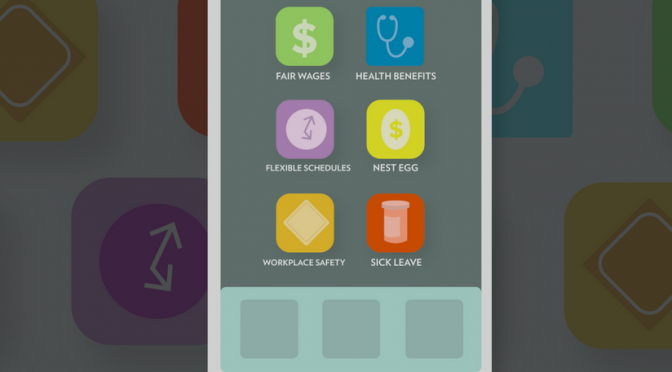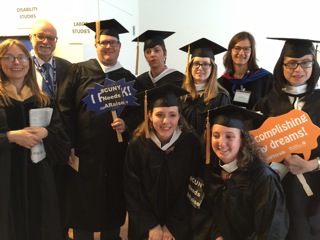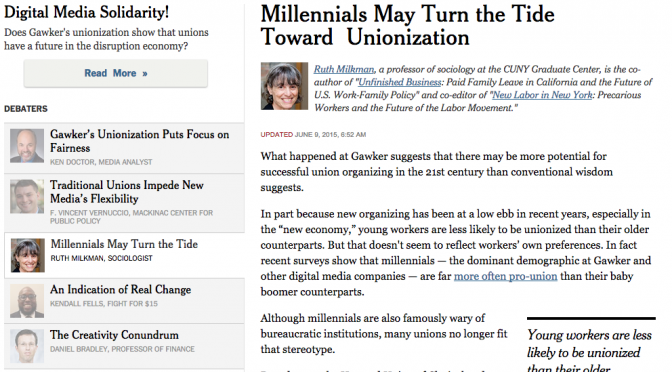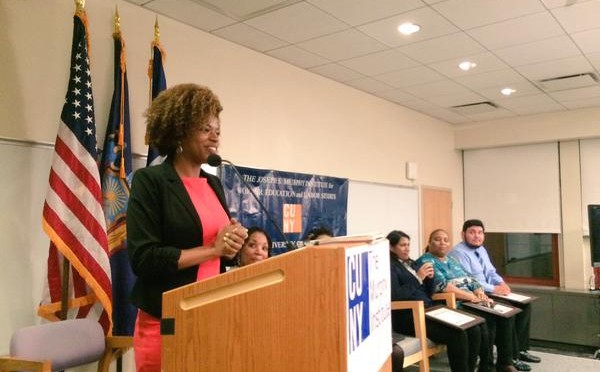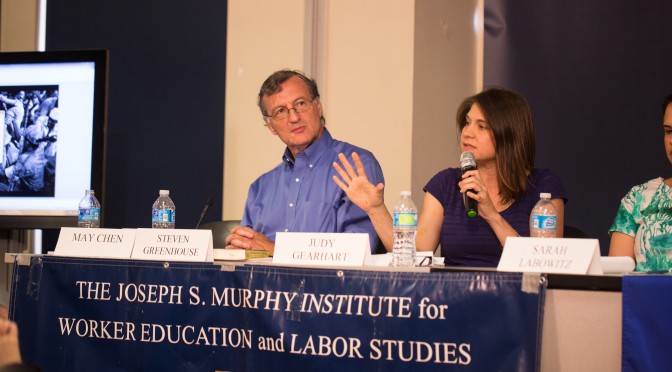In a new report on virtual labor organizing by Mark Zuckerman, Richard D. Kahlenberg, and Moshe Z. Marvit, the authors suggest that the labor movement could grow through use of online organizing tools, and the NLRB would support such innovations. The report has implications for popular organizing models unions use now, which often involve developing or bringing in teams of organizers for face-to-face conversations. Could online tools augment that work? Replace it?
From the report, Virtual Labor Organizing: Could Technology Help Reduce Income Inequality?:
In an era of persistent income inequality, virtual organizing may provide an opportunity to lift the lifetime earnings of hardworking Americans.
The creation of [a] platform, in and of itself, could give employees surprising new leverage at work, once the company understands that dissatisfied employees have an easier, less-obstructed way to join a union.
If virtual organizing took hold, it also could transform the way in which the nation’s top labor unions deploy their organizing capabilities. Rather than just engaging in resource-intensive retail organizing, they could become wholesalers of union formation, investing in large-scale promotion of an online resource, backed by call-centers and a significant network architecture standing behind this powerful new tool.
The American worker certainly needs help to reclaim the benefits of the legal right to organize. Wages and salaries—once over 50 percent of GDP have now slid to 42.6 percent, the lowest since 1929. This disastrous decline in prosperity needs to be disrupted. Recent economic, political, and legal trends—as well as the surging use of technology—may provide workers a way forward through virtual labor organizing.
The full report is available here.
What do you think? How could a new virtual platform change the face of labor organizing?

